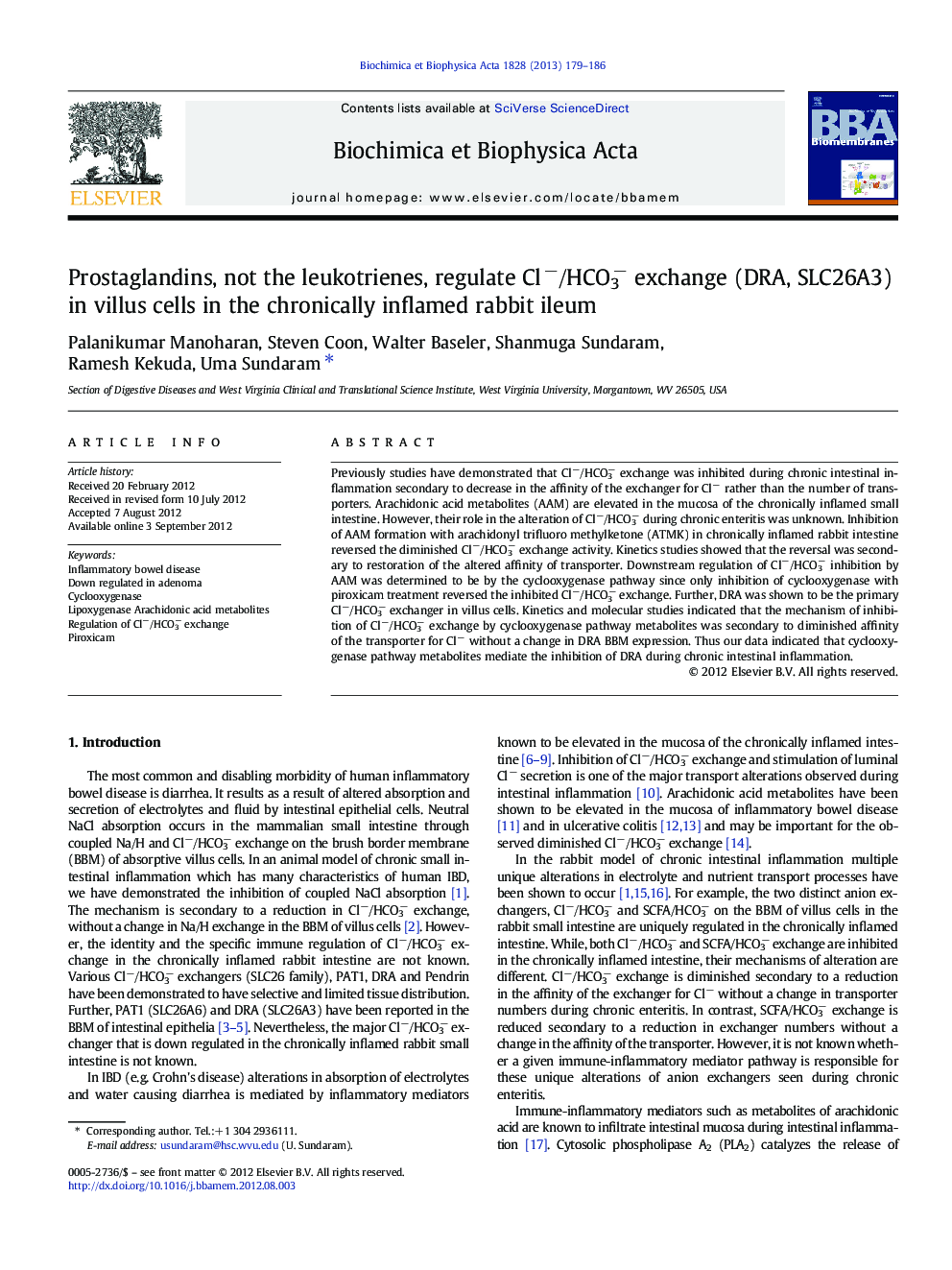| Article ID | Journal | Published Year | Pages | File Type |
|---|---|---|---|---|
| 1944350 | Biochimica et Biophysica Acta (BBA) - Biomembranes | 2013 | 8 Pages |
Previously studies have demonstrated that Cl−/HCO3− exchange was inhibited during chronic intestinal inflammation secondary to decrease in the affinity of the exchanger for Cl− rather than the number of transporters. Arachidonic acid metabolites (AAM) are elevated in the mucosa of the chronically inflamed small intestine. However, their role in the alteration of Cl−/HCO3− during chronic enteritis was unknown. Inhibition of AAM formation with arachidonyl trifluoro methylketone (ATMK) in chronically inflamed rabbit intestine reversed the diminished Cl−/HCO3− exchange activity. Kinetics studies showed that the reversal was secondary to restoration of the altered affinity of transporter. Downstream regulation of Cl−/HCO3− inhibition by AAM was determined to be by the cyclooxygenase pathway since only inhibition of cyclooxygenase with piroxicam treatment reversed the inhibited Cl−/HCO3− exchange. Further, DRA was shown to be the primary Cl−/HCO3− exchanger in villus cells. Kinetics and molecular studies indicated that the mechanism of inhibition of Cl−/HCO3− exchange by cyclooxygenase pathway metabolites was secondary to diminished affinity of the transporter for Cl− without a change in DRA BBM expression. Thus our data indicated that cyclooxygenase pathway metabolites mediate the inhibition of DRA during chronic intestinal inflammation.
Graphical abstractFigure optionsDownload full-size imageDownload high-quality image (191 K)Download as PowerPoint slideHighlights► DRA mediates the Cl¯/HCO3¯ exchange activity in rabbit ileum. ► In chronic enteritis DRA is inhibited via diminished affinity of transporter for Cl. ► DRA inhibition is reversed when arachidonic acid formation is prevented. ► Specific regulation of DRA inhibition during chronic enteritis is by prostaglandin.
